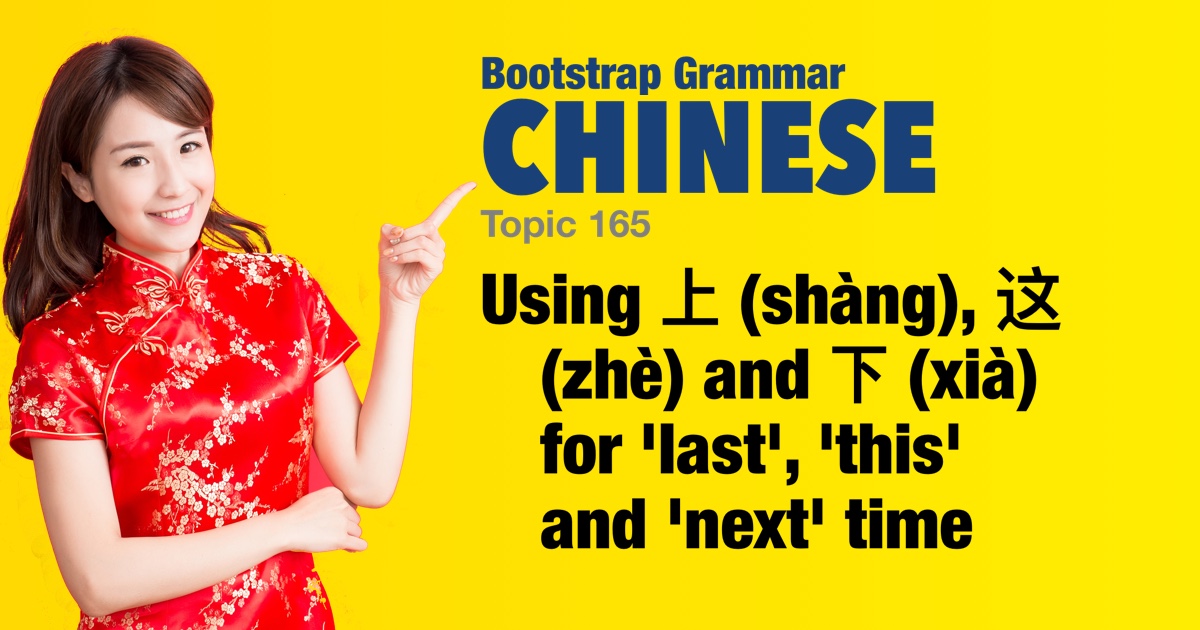Chinese grammar - Using 上 (shàng), 这 (zhè) and 下 (xià) for 'last', 'this' and 'next' time |
|||
|
|||
The words 上 (shàng), 这 (zhè), and 下 (xià) are used to refer to 'last', 'this', and 'next' for various time durations such as weeks, months, quarters, and days. They should always be coupled with the appropriate counter or measure word - which in the case of most time words is 个 (ge). Note however that 'year' uses different indicators: 去年 (qùnián) - last year; 今年 (jīnnián) - this year; 明年 (míngnián) - next year. Note that for times of the day ('morning'/'noon'/'night') we don't use 'last' or 'next' but, as in English, we use 'yesterday'/'tomorrow' - for example 昨天早上 (zuótiān zǎoshang) means 'yesterday morning' |
| Examples: | |
|
上个星期
shàng ge xīngqī Last week |
|
|
这个星期
zhè ge xīngqī This week |
|
|
下个星期
xià ge xīngqī Next week |
|
|
上个月
shàng ge yuè Last month |
|
|
这个月
zhè ge yuè This month |
|
|
下个月
xià ge yuè Next month |
|
|
上个周末
shàng ge zhōumò Last weekend |
|
|
这个周末
zhè ge zhōumò This weekend |
|
|
下个周末
xià ge zhōumò Next weekend |
|
|
昨天晚上
zuótiān wǎnshang Yesterday evening
|
|
|
这个晚上
zhè ge wǎnshang This evening |
|
|
明天晚上
míngtiān wǎnshang Tomorrow evening
|
|
|
上个假期
shàng ge jiàqī Last holiday/vacation |
|
|
这个假期
zhè ge jiàqī This holiday/vacation |
|
|
下个假期
xià ge jiàqī Next holiday/vacation |
|
 |
|


 Like in English we don
Like in English we don